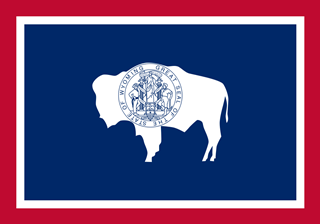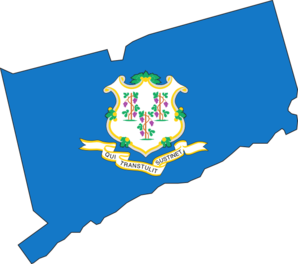May 12, 2022 •
Colorado Legislature Adjourns Sine Die

Colorado Capitol Building
The 73rd Colorado General Assembly adjourned sine die May 11. During the session, legislation related to campaign finance was introduced. House Bill 1060 was passed, creating aggregate limits on candidates for school district director from persons other than small donor […]
The 73rd Colorado General Assembly adjourned sine die May 11.
During the session, legislation related to campaign finance was introduced. House Bill 1060 was passed, creating aggregate limits on candidates for school district director from persons other than small donor committees for any regular biennial or special school election of $2,500. Further, a $25,000 limit was established for contributions to candidates for school district director from small donor committees for any regular biennial or special school election. The bill takes effect July 1.
Additionally, Senate Bill 237 relating to ballot measure expenditures was introduced and passed through both chambers as of May 10. The bill would expand the definition of earmark for purposes of the Fair Campaign Practices Act to include contributions or expenditures greater than $1,000 to support or oppose a specified ballot issue or ballot question. Further, the bill would modify the process to determine whether an organization is an issue committee to include an examination of the organization’s pattern of conduct. Additionally, any person who makes a expends $5,000 in aggregate in a calendar year on direct ballot issue or ballot question expenditure expenditures must report to the secretary of state, and any person who makes a direct ballot issue or ballot question expenditure must disclose their name in certain communications about a ballot issue or ballot question. If passed, portions of the bill would become effective immediately and the section providing for disclosure to the secretary of state of $5,000 spent by an individual in a calendar year would become effective September 1.
This does not affect lobbyist reporting.
July 29, 2014 •
Wyoming Group Sues To Remove Aggregate Contribution Limit
A libertarian group has filed a lawsuit in federal court to remove the state’s aggregate limit on political contributions. The Liberty Group, on behalf of Dan and Carleen Brophy, sued Secretary of State Max Maxfield claiming the state’s aggregate limit […]
 A libertarian group has filed a lawsuit in federal court to remove the state’s aggregate limit on political contributions. The Liberty Group, on behalf of Dan and Carleen Brophy, sued Secretary of State Max Maxfield claiming the state’s aggregate limit of $25,000 per two-year cycle unconstitutionally restricts free speech.
A libertarian group has filed a lawsuit in federal court to remove the state’s aggregate limit on political contributions. The Liberty Group, on behalf of Dan and Carleen Brophy, sued Secretary of State Max Maxfield claiming the state’s aggregate limit of $25,000 per two-year cycle unconstitutionally restricts free speech.
The state has declined to follow Maryland and Massachusetts in issuing orders not to enforce state law following the U.S. Supreme Court’s ruling in McCutcheon v. Federal Election Commission.
In June, a majority of the Joint Corporations, Appropriations, and Political Subdivisions Interim Committee voted to order staff to draft a bill repealing a new limit for PAC contributions as well as the existing aggregate limit.
The Maine Commission on Governmental Ethics and Election Practices will no longer enforce the yearly aggregate contribution limit applicable to individuals and entities contained in Maine Revised Statutes section 1015(3). In a policy statement issued June 4, 2014, the commission […]
 The Maine Commission on Governmental Ethics and Election Practices will no longer enforce the yearly aggregate contribution limit applicable to individuals and entities contained in Maine Revised Statutes section 1015(3). In a policy statement issued June 4, 2014, the commission cited recent U.S. Supreme Court decision McCutcheon v. FEC as authority for its determination.
The Maine Commission on Governmental Ethics and Election Practices will no longer enforce the yearly aggregate contribution limit applicable to individuals and entities contained in Maine Revised Statutes section 1015(3). In a policy statement issued June 4, 2014, the commission cited recent U.S. Supreme Court decision McCutcheon v. FEC as authority for its determination.
The commission stated it will no longer enforce the $25,000 aggregate limit “unless and until it receives further guidance from the Maine Legislature or a court of competent jurisdiction.”
The policy statement also noted the commission’s intention to study the issues and perhaps propose legislation during the next state legislative session.
The State Elections Enforcement Commission has announced it will no longer enforce the state’s aggregate contribution limit after the U.S. Supreme Court’s ruling in McCutcheon v. FEC. At its May 14 meeting, the Commission determined the McCutcheon decision called into […]

The State Elections Enforcement Commission has announced it will no longer enforce the state’s aggregate contribution limit after the U.S. Supreme Court’s ruling in McCutcheon v. FEC. At its May 14 meeting, the Commission determined the McCutcheon decision called into question the enforceability of the aggregate limits and stated it will not enforce the limits absent further direction from the General Assembly or a court of competent jurisdiction. The Commission made clear, however, the base contribution limits remain in full force and effect.
The full text of the Commission’s opinion is available here.
February 24, 2014 •
US Supreme Court Ruling on Aggregate Limits of Political Contributions May be Coming Soon
A United States Supreme Court ruling deciding the constitutionally of aggregate limits on federal campaign contributions may be issued as early as this week. The case, McCutcheon v. Federal Election Commission, seeks to allow Shaun McCutcheon to make political contributions […]

A United States Supreme Court ruling deciding the constitutionally of aggregate limits on federal campaign contributions may be issued as early as this week.
The case, McCutcheon v. Federal Election Commission, seeks to allow Shaun McCutcheon to make political contributions to several federal candidates exceeding the two-year aggregate limit set in 2 U.S.C §441a(a)(3)(A). The plaintiff argues the limit is unconstitutional because it violates a citizen’s right to speak and to associate with not just any candidate, but every candidate of his choosing.
The Supreme Court decided to grant a review of the case in February 2013 and oral arguments were made on October 8, 2013.
Photo of the United States Supreme Court Building courtesy of UpStateNYer on Wikimedia Commons.
State and Federal Communications, Inc. provides research and consulting services for government relations professionals on lobbying laws, procurement lobbying laws, political contribution laws in the United States and Canada. Learn more by visiting stateandfed.com.

